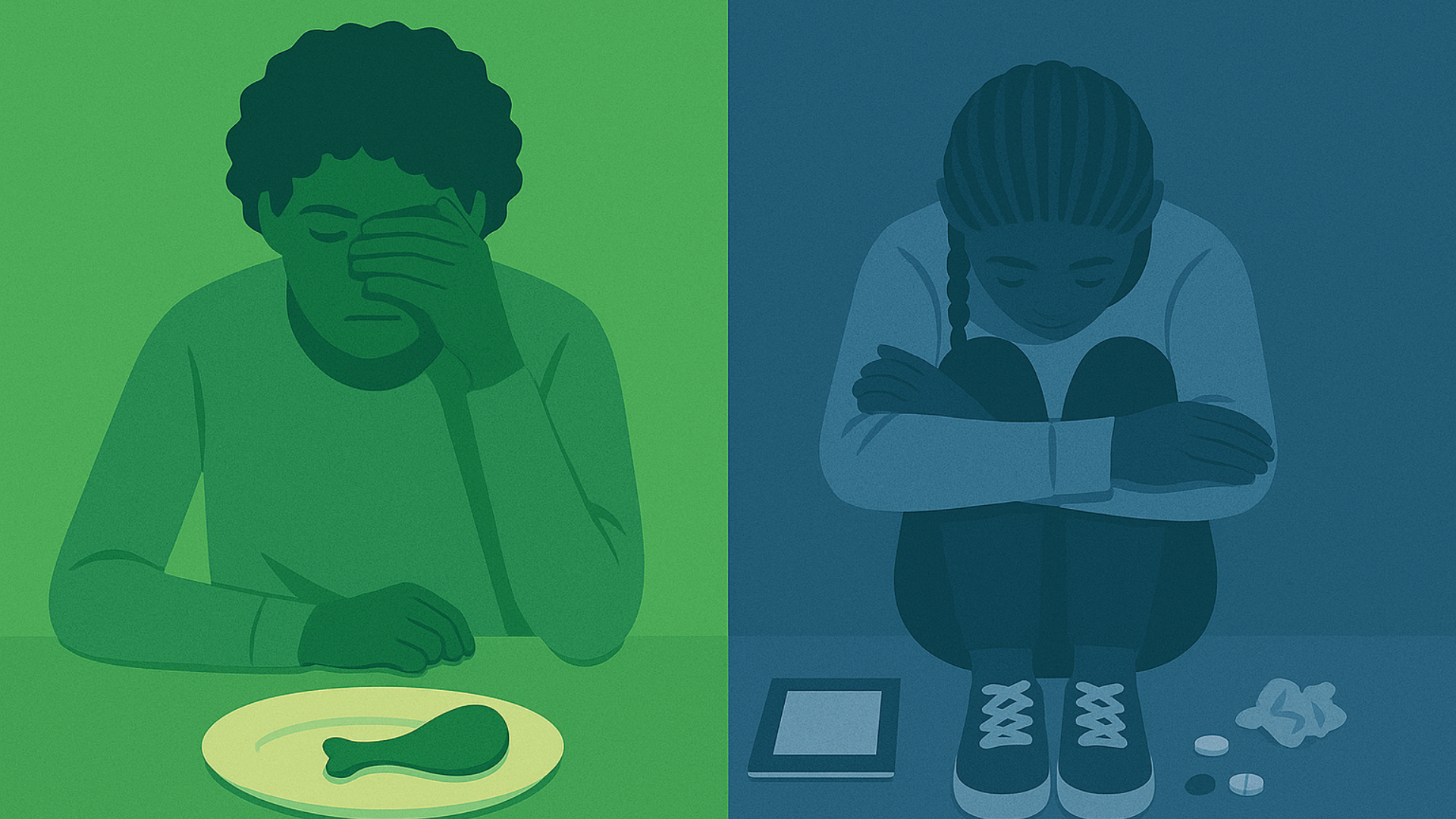The Holiday Season and Eating Disorders

How Intuitive Eating Can Help Brighten the Holiday Season
Festivities, friends, and family give the holiday season a cheerful glow and wraps a bow around the past year. We treat ourselves to mellow winter days and partake in merry meals surrounded by loved ones.
But unfortunately for individuals struggling with an eating disorder, the holiday season can be the most dreaded time of year, partially because there is such a large emphasis on food. Most gatherings center around food and drinks. And everywhere you look, there are pictures, commercials, and billboards of holiday feasts, fancy silverware, sweet treats, and new recipes. Seeing, hearing and/or talking about food during the holidays is almost unavoidable.
For many of us, this is a joyous time, and we look forward to gathering around the dinner table, eating a holiday feast with our loved ones. But for those battling an eating disorder, the season’s emphasis on food can increase fear, anxiety, stress and even the symptoms of the eating disorder itself.
Fortunately, intuitive eating can be used as a healthy strategy for individuals with eating disorders to cope with food anxiety and embrace the holiday season. Intuitive eating is an approach to food that has nothing to do with diets, meal plans, discipline or willpower. It teaches individuals how to get in touch with their body cues, like hunger, fullness and satisfaction. The concept challenges the false notion that there is good and bad food. Instead, there is no such thing as good or bad food, and all food is beautiful. Realizing that all food is beautiful opens the door to a new food journey. By listening to what the body is craving, and paying attention to hunger and fullness cues, individuals can begin to develop a healthy relationship with food and their bodies.
Another important aspect of intuitive eating is to practice mindful awareness by tuning into your senses. Notice how the food smells, tastes, and makes you feel. Appreciate the different colors and shapes on your plate. By tuning into their senses, individuals are more likely to enjoy the dining experience and be satisfied with their meal. Mindful eating can help all of us honor our body’s hunger and fullness, and allow us to nourish our bodies, minds and spirits with sustenance that we need and enjoy.
How to Support Someone Struggling With an Eating Disorder
We always want what is best for our loved ones, especially during the holidays when we center our activities around family and friendship. When a loved one is struggling with an eating disorder, we need to act as a support system for them. Here are some ways to help a loved one through this difficult time:
-
Educate yourself on eating disorders. The more educated you are, the more likely you are to understand and identify the difference between facts and myths.
-
Be honest, and use “I” statements. Honesty is always the best policy. When addressing your loved one, use “I” statements so they do not feel attacked. For example you could say “I feel like you have not been acting like yourself lately” instead of “you are not yourself anymore.”
-
Be patient, kind and supportive. Your loved one cannot heal their relationship with food overnight. It takes time, and there will be good days and bad days. You need to be someone who will encourage them, not criticize them.
-
Encourage them to seek professional help. Eating disorders are complex and greatly impact physical and mental health. Instead of facing an eating disorder alone, individuals should rely on specialists to help them heal. Seeking professional help is the first step to recovery.
We have your back!
Thrive’s team of mental and physical health professionals specialize in treating eating disorders. Because eating disorders affect your mental and physical health, we use a holistic approach that examines the individual’s physical, emotional, social and spiritual wellbeing.
We offer an intensive outpatient program (IOP) and a partial hospitalization day treatment program (PHP) designed to support those struggling with eating disorders. We also host a free eating disorder recovery support group that meets every Tuesday at 5 p.m. To learn more about our programs and support groups, click here. Let’s get through this together!
The post The Holiday Season and Eating Disorders first appeared on Thrive Wellness.








